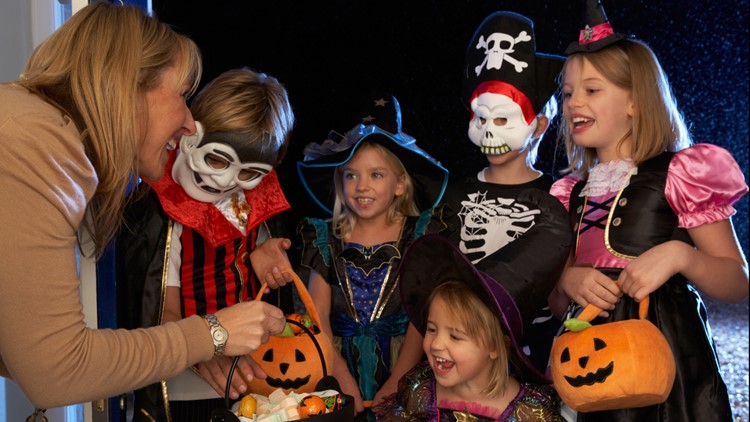COLUMBIA, S.C. — According to The Palmetto Poison Center, there are a few things you can do to keep children safe this Halloween.
Candy
Children should not eat any candy unless parents have had time to inspect it for small holes and punctures. Candy should be in the original, unopened container. The Palmetto Poison Center recommends feeding children prior to trick-or-treating so they will be less likely to snack.
Parents should throw away any suspicious or questionable candy.
Costumes
Always use Halloween makeup that is non-toxic.
Glow Sticks
Make sure children who have glow sticks are being supervised.
“We see an increase in glow stick ingestions this time of year”, states Dr. Jill Michels a Clinical Pharmacist and Director of the Palmetto Poison Center located within the University of South Carolina’s College of Pharmacy. “Parents need to remember when glow sticks are being used by small children they need to be supervised at all times.”
- If a glow stick breaks and the chemical gets on the skin, wash the skin with soap and water. If the chemical gets in the eye, flush with lukewarm water for 5 minutes.
- If contents are injected, it can cause nausea and burning. Give small amounts of water and watch for coughing.
- Contact the Palmetto Poison Center with any exposure from the contents of glow sticks.
The Palmetto Poison Center is staffed by trained nurses and pharmacists who can provide treatment information when a parent needs information about Halloween safety. Additionally, the Palmetto Poison Center provides poison prevention education around the state to inform parents and youngsters not only about the dangers of household poisonings, but also outdoor exposure to poisonous agents. From medication errors to insect bites, poisonous plants, pesticides and other household chemicals, the Palmetto Poison Center can provide expert advice. The Center provides services to over 4 million residents in all 46 counties of South Carolina. Services are free, confidential and available 24 hours a day, seven days a week.
To contact the Palmetto Poison Center, call 1-800-222-1222. Please visit their website at poison.sc.edu or join their page on Facebook.



